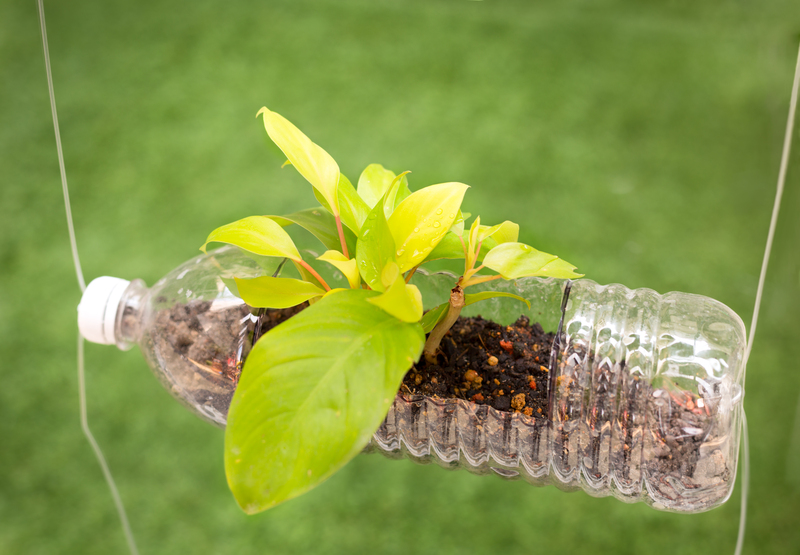10 Practical Measures to Minimize Your Green Waste
In today's environmentally conscious world, managing green waste is not just a matter of personal responsibility but also a social necessity. This article will guide you through ten practical measures to minimize your green waste effectively. Whether you are an avid gardener or a casual homeowner, these tips will help you contribute to a more sustainable environment.
What is Green Waste?
Green waste refers to biodegradable waste that comes from gardens or parks, such as grass clippings, leaves, branches, and food scraps. Proper management of green waste is crucial for reducing landfill contributions and promoting organic recycling.


The Importance of Minimizing Green Waste
Reducing green waste is essential for several reasons:
- Decrease landfill usage
- Lower greenhouse gas emissions
- Promote nutrient cycling
- Conserve resources
1. Start Composting
Composting is an excellent technique to minimize organic waste. By turning kitchen scraps and garden waste into compost, you create a rich soil amendment.
Benefits of Composting
- Reduces landfill waste
- Enriches soil
- Helps retain moisture
- Suppresses plant diseases
2. Practice Grasscycling
Grasscycling involves leaving grass clippings on the lawn to decompose naturally. This simple practice can significantly reduce the volume of green waste and provide nutrients to your lawn.
Tips for Grasscycling
- Mow regularly to avoid excessive clippings
- Use a mulching mower
- Maintain healthy grass length
3. Implement Mulching
Mulching is a method of covering soil with organic materials like leaves, wood chips, or straw to enhance soil health and limit weed growth.
How Mulching Minimizes Green Waste
- Reduces need for chemical fertilizers
- Conserves moisture
- Maintains even soil temperature
4. Reduce, Reuse, Recycle
Adopting the reduce, reuse, recycle mindset can help in minimizing green waste at home:
- Reduce: Plan your garden to eliminate excess waste
- Reuse: Use garden waste in creative ways, such as using trimmed branches for decorations
- Recycle: Recycle yard waste through community programs
5. Engage in Smart Gardening
Focusing on smart gardening techniques can lead to less waste generation:
Smart Gardening Tips
- Plant perennials to avoid replanting annually
- Choose native plants which require less care
- Implement crop rotation
6. Participate in Community Green Waste Programs
Many communities offer green waste recycling programs. Engage with these initiatives to recycle your garden waste effectively.
Benefits of Community Programs
- Accessibility of waste collection
- Reduction in individual landfill contribution
- Opportunities for communal composting
7. Buy Local and Seasonal Produce
Opting for local and seasonal produce can reduce the packaging waste and carbon footprint associated with transported goods.
Advantages of Local Produce
- Supports local farmers
- Fresher and more nutritious
- Less transportation, lower emissions
8. DIY Garden Projects
Embrace DIY projects using green waste materials. Turn old plant containers into new planters or use wood chips for artistic projects.
Creative DIY Ideas
- Build a compost bin
- Create garden paths with stones and wood chips
- Craft bird feeders using old wood
9. Educate and Inspire Others
Sharing knowledge about the importance and methods of minimizing green waste is crucial. Educate your family, friends, and community members on sustainable practices.
Ways to Spread Awareness
- Host workshops or webinars
- Create informational pamphlets
- Utilize social media for green initiatives
10. Use Technology to Aid Waste Management
Advancements in technology can help streamline waste management processes. Utilize apps and smart systems to monitor and manage your green waste better.
Technological Tools to Consider
- Smart composting systems
- Gadget apps for garden planning
- Online platforms for waste recycling
Conclusion
Redefining how we manage and minimize our green waste is critical in creating a sustainable future. By implementing these practical measures, not only will you contribute to environmental conservation, but you will also educate and influence others to do the same. Start today with these actionable steps, and be part of the global movement towards waste minimization!